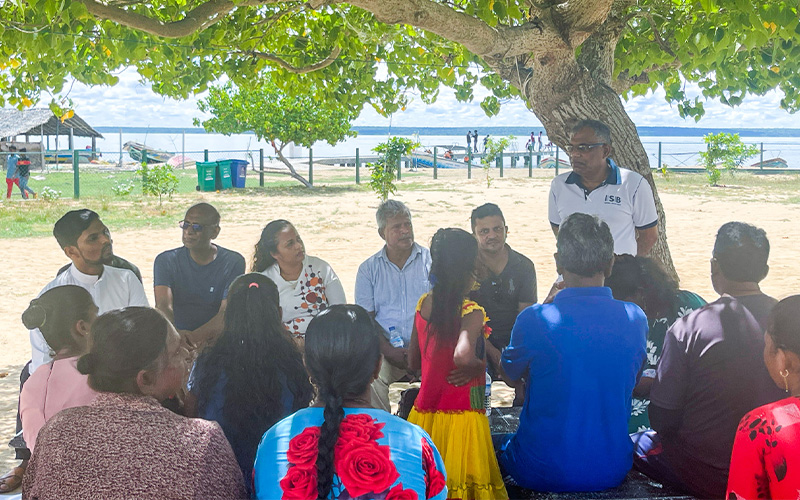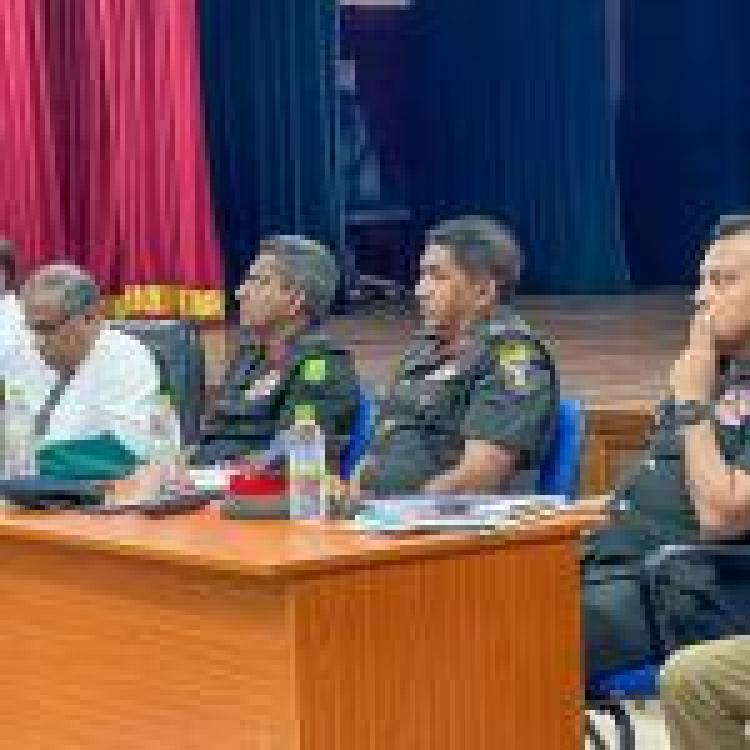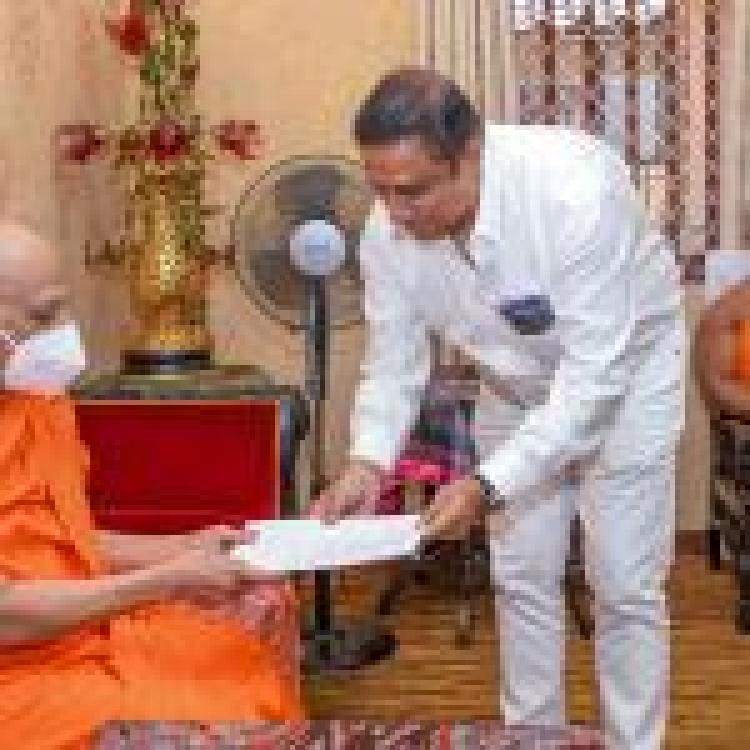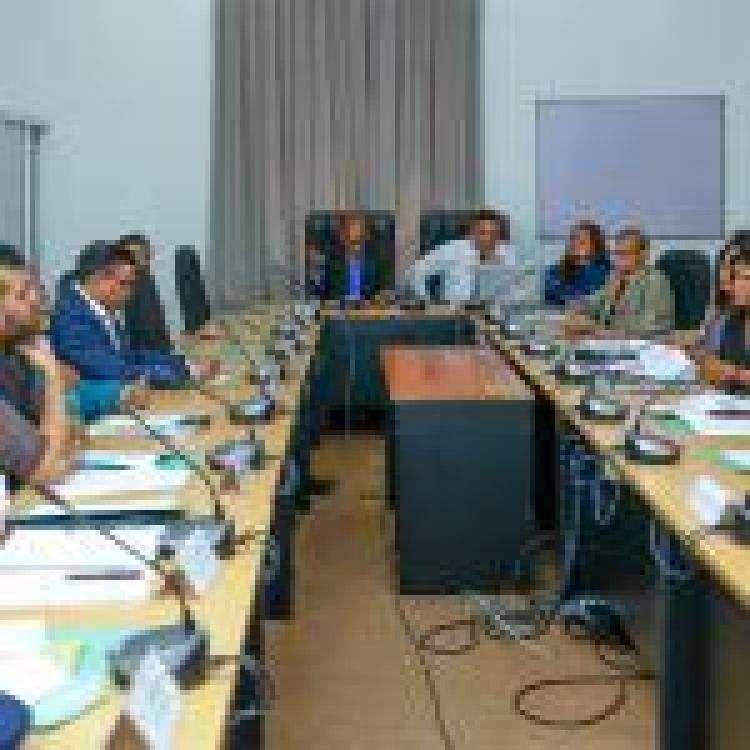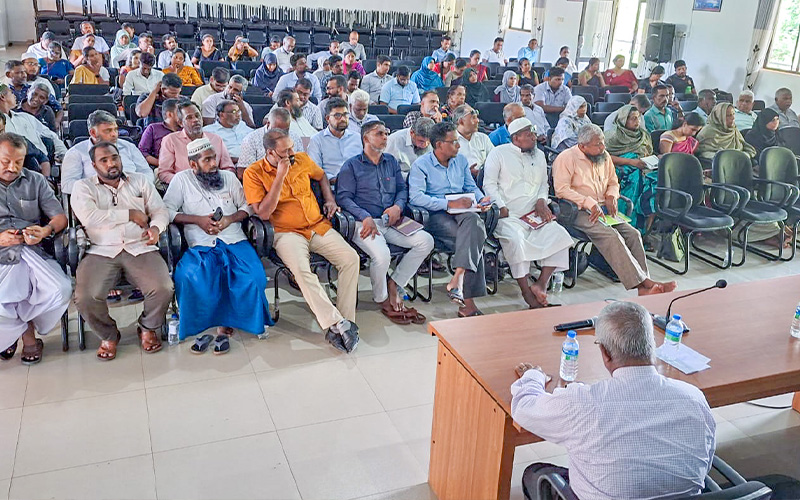
Sri Lanka’s controversial truth and reconciliation mechanism, the Interim Secretariat for the Truth and Reconciliation Mechanism (ISTRM), which has been roundly criticized by international experts and Tamil civil society, met with Sri Lankan police officers and air force officers in the Puttalam district to gather their feedback on the proposed reconciliation legislation.
The President Media Division (PMD) cited that the team held “broader consultation with ex-military officers, representatives from civil society organizations, Janasabha members, and ONUR Co-existing committee members covered a wide range of social and administrative concerns.”
“During the consultations, it was highlighted that the quality of education and healthcare is being affected by the shortage of teachers and doctors, as well as the strain on resources due to internally displaced citizens residing in the Puttalam district," it contionued. "Other concerns raised included soil erosion and the reservation of land by the Forest Department.”
Sri Lanka’s ISTRM is yet another government initiative that has been slammed by Tamil survivors as another move to delay international justice.
The move has been slammed by Tamils across the North-East and around the world, who for decades have demanded an independent international mechanism to obtain justice for mass atrocities.
Successive Sri Lankan governments have refused to partake in any international accountability mechanism and instead has delayed for years with repeated “domestic” initiatives.
Last month marked 15 years since the genocide at Mullivaikkal. To date, no one has been held accountable.
